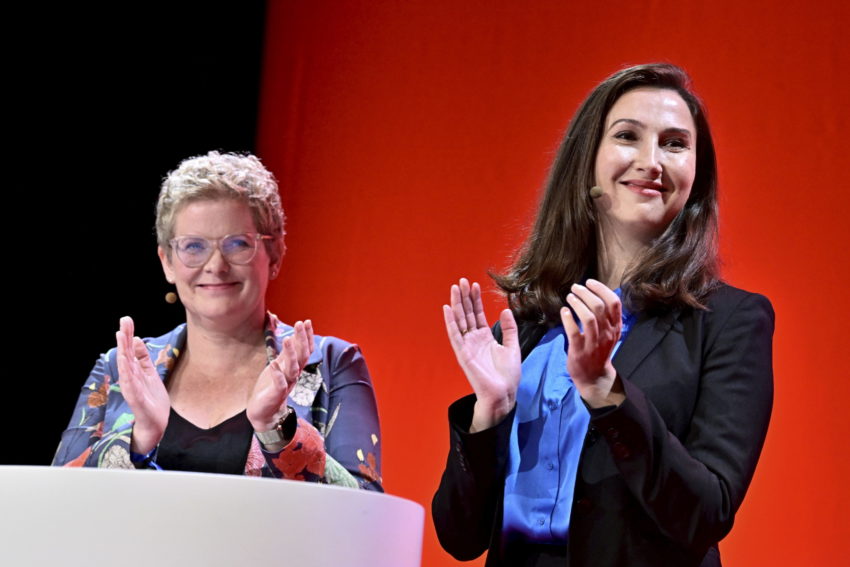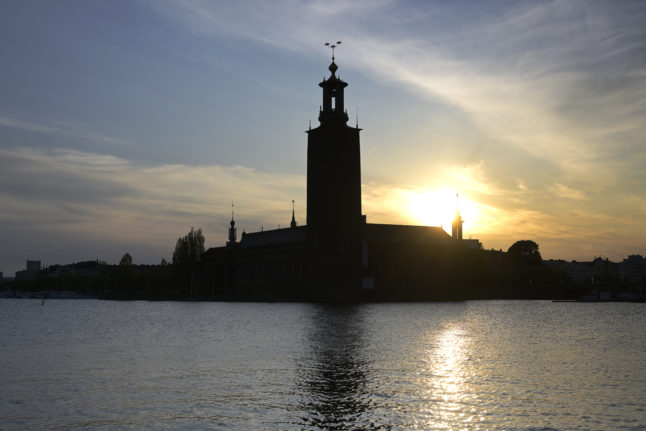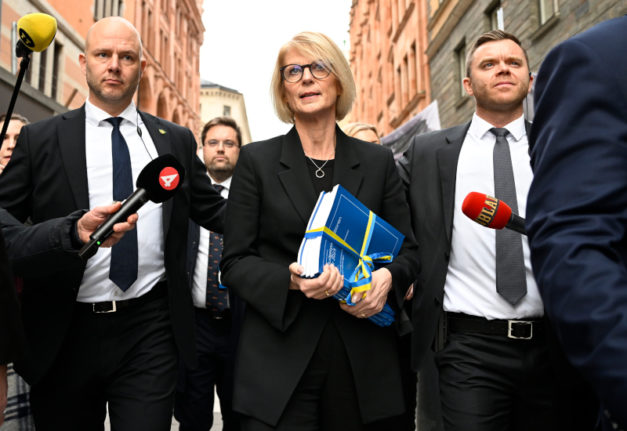The Social Democrats appear ready to seize control in Stockholm after 16 years of right-wing rule, after taking 29.2 percent of the vote in Sunday’s election, up from just 22.3 percent in 2018, with 454 of the city’s 598 districts counted.
“There is a historic shift of government taking place,” Aida Hadzialic, the party’s leader in Stockholm, told Mitt i Stockholm. “And that’s because we have presented an alternative where we look after our common resources.”
The only way the right-wing parties could retain control would be with the support of the Sweden Democrats, something the Centre Party, which is part of the Moderate-led coalition running the city, refuses to accept.
“The Sweden Democrats are the antithesis of the Centre Party, they have another view of humanity,” Gustav Hemming, the party’s leader, told the newspaper. “They also don’t share our position on the climate issue.”

The Social Democrats also saw a significant rise in support in Gothenburg, winning 26.5 percent of the vote, up from 20 percent in 2018, according to preliminary numbers with 408 of 411 voting districts counted.
Jonas Attenius, the party’s leader in Sweden’s second city, told the Dagens Nyheter newspaper that the result was ”absolutely fantastic”. The party, he said looked likely to win districts like Högsbo, Olskroken and Torslanda, which it has long seen as right-wing territory.
Demokraterna, the Gothenburg party that took close to 17 percent of the vote in 2018, saw its support collapse to just 6.3 percent in the election.
If the party were to team up with the Green and Left Parties in the city council, it would have a majority, but Attenius may instead seek a coalition deal with another party to the right.
“I’m not closing any doors apart from to the Sweden Democrats,” he said. “I’m going to talk across the board with various parties and have been in contact with parties already today. I see a good chance of a Social Democrat-run Gothenburg.”
In Malmö, the Social Democrats look like they have held onto the city, keeping all 20 of the seats they won in the city council back in 2018, according to the preliminary figures, while their allies, the Green Party and the Left Party, gained one and two seats respectively.
The city has been ruled by the Social Democrats since 1919, with the exception of one four-year term between 1985 and 1988 and another between 1991 and 1994.
The Moderates also held their position, keeping all of their 13 seats. The Liberal Party, Centre Party and Sweden Democrats all lost one seat.
It is still unclear whether the Social Democrats will continue to rule in coalition with the Liberal Party, or whether the party will find new partners.

The big surprise in Malmö was the success of the new immigrant-focused party Nyans, which was the second biggest party after the Social Democrats in several election districts where there is a high immigrant population.
The party won 30.9 percent of the vote in Rosengård Centrum, just behind the Social Democrats on 38.3 percent.
The party had campaigned hard in the district in the hope of getting more than 12 percent in Malmö as a whole, which would have won it a seat in parliament under a little known parliamentary rule.



 Please whitelist us to continue reading.
Please whitelist us to continue reading.
Member comments